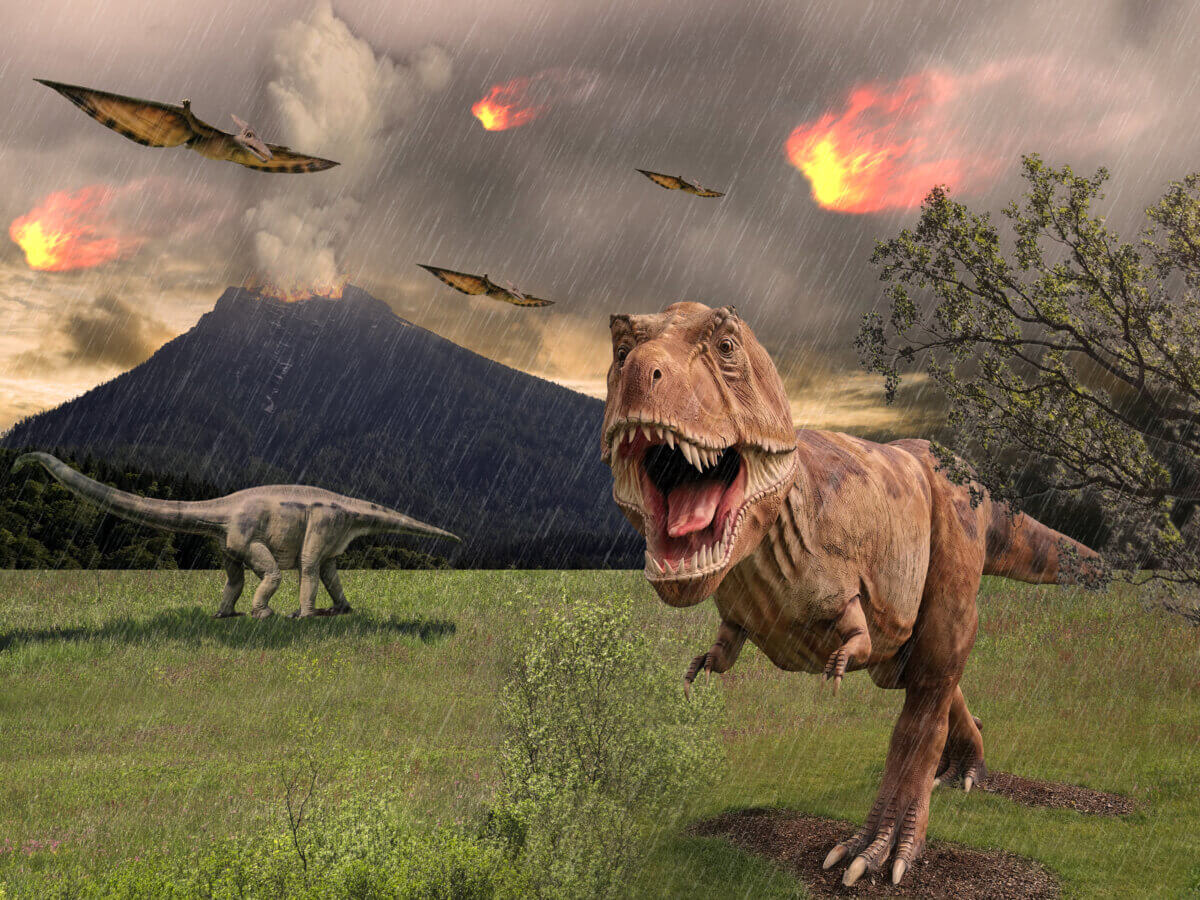Scientists rule out volcanic eruptions as a cause of the mass extinction of dinosaurs

What wiped off the dinosaurs, the most enormous creatures ever walking the Earth? The Chicxulub meteorite or the effects of the massive volcanic eruptions? Modern children’s books speculate on these two competing ideas. Scientists have now taken away the possibility of volcanic eruptions having any direct role in the mass extinction of dinosaurs.
For a long time, it was believed that the massive volcanic eruptions on the Indian peninsula might have caused the extinction of dinosaurs. This occurred before a meteorite struck the earth 66 million years ago. The effect of these eruptions on our climate has been a long-debated topic. Now, scientists from Utrecht University and the University of Manchester have finally found that volcanism cannot be linked to the extinction of dinosaurs. They concluded that though the volcanism could create a temporary cold period on Earth, its effects would have worn off even thousands of years before the meteorite hit. They think the meteorite’s impact was the root cause of the extinction.
In the study published in Science Advances, climate scientists provide new evidence that though the volcanic eruptions in India had a global impact on climate change, they had little to no effect on the mass extinction of dinosaurs.

The meteorite impact in the Gulf of Mexico 66 million years ago is believed to have marked the end of the dinosaur age. However, earth scientists have long debated the role of massive volcanic eruptions on the Indian continent in the extinction. These eruptions released large amounts of CO₂, dust, and sulphur, altering Earth’s climate. Scientists analyzed fossil molecules in ancient peats from the USA to reconstruct air temperatures during volcanic eruptions and meteorite impacts. They found a volcanic eruption 30,000 years before the meteor impact caused a 5°C cooling due to sulphur emissions. But by 20,000 years before the meteor impact, temperatures had stabilized and returned to pre-eruption levels.

Lauren O’Connor from Utrecht University notes that volcanic CO2 emissions likely aided this period of global warming. “These volcanic eruptions and associated CO2 and sulphur release would have had drastic consequences for life on earth. But these events happened millennia before the meteorite impact and probably played only a small part in the extinction of dinosaurs,” O’Connor says.
As the effects of volcanism are ruled out, the Chicxulub meteorite impact is thought to be the primary cause of the dinosaur mass extinction. “By comparison, the impact from the asteroid unleashed a chain of disasters, including wildfires, earthquakes, tsunamis, and an ‘impact winter’ that blocked sunlight and devastated ecosystems. We believe the asteroid that ultimately delivered the fatal blow,” says Rhodri Jerrett at the University of Manchester.




